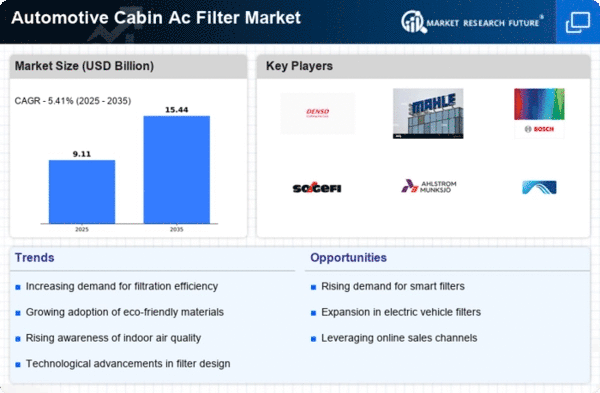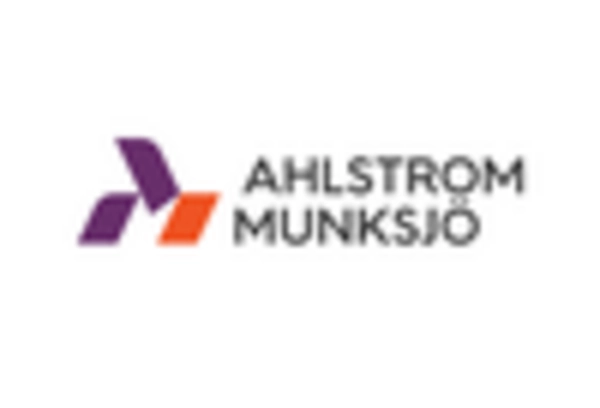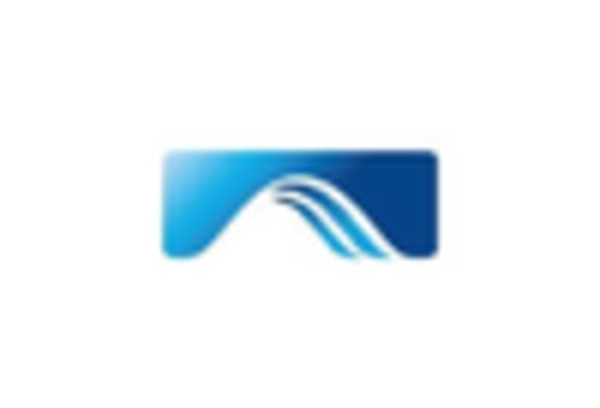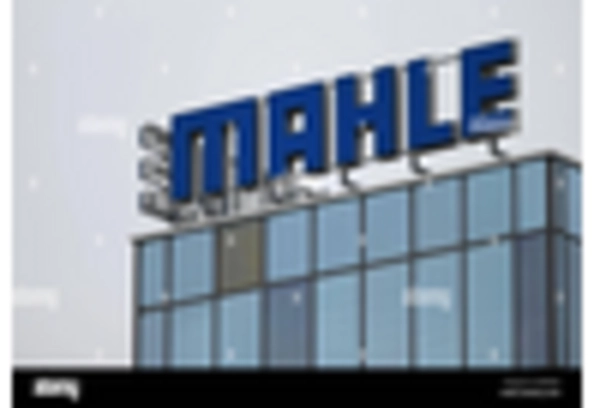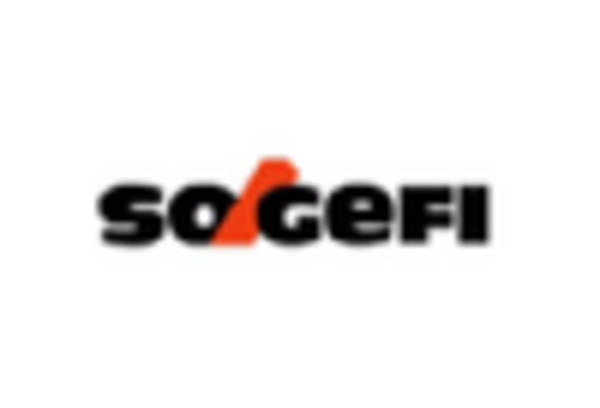North America : Market Leader in Filters
North America is poised to maintain its leadership in the Automotive Cabin AC Filter Market, holding a significant market share of 3.45 in 2024. The region's growth is driven by increasing vehicle production, heightened consumer awareness regarding air quality, and stringent regulations on vehicle emissions. The demand for high-efficiency filters is further propelled by the rising trend of electric vehicles, which require advanced filtration systems to ensure optimal performance.
The competitive landscape in North America is robust, featuring key players such as Mann+Hummel, Denso Corporation, and Bosch. The U.S. stands out as the leading country, with a strong automotive manufacturing base and a growing aftermarket for replacement filters. The presence of established companies and ongoing innovations in filter technology are expected to sustain market growth, making North America a focal point for industry advancements.
Europe : Regulatory-Driven Market Growth
Europe's Automotive Cabin AC Filter Market is characterized by a market size of 2.8, driven by stringent environmental regulations and a strong emphasis on sustainability. The European Union's commitment to reducing vehicle emissions and improving air quality has catalyzed demand for high-performance filters. Additionally, the growing trend of electric vehicles is influencing the market, as these vehicles require advanced filtration systems to maintain air quality within the cabin.
Leading countries in this region include Germany, France, and Italy, where major players like Mahle GmbH and Sogefi Group are actively innovating. The competitive landscape is marked by a focus on eco-friendly materials and technologies, aligning with regulatory requirements. The presence of established manufacturers and a growing aftermarket for replacement filters further enhance market dynamics, positioning Europe as a key player in The Automotive Cabin Ac Filter.
Asia-Pacific : Emerging Market Potential
The Asia-Pacific region, with a market size of 2.1, is rapidly emerging as a significant player in the Automotive Cabin AC Filter Market. The growth is primarily driven by increasing vehicle production, urbanization, and rising disposable incomes in countries like China and India. Additionally, government initiatives aimed at improving air quality and reducing pollution are propelling the demand for advanced filtration systems in vehicles, making this region a focal point for market expansion.
China leads the market in the Asia-Pacific, supported by a robust automotive manufacturing sector and a growing consumer base. Key players such as Denso Corporation and Freudenberg Group are investing in innovative technologies to enhance filter performance. The competitive landscape is evolving, with a focus on meeting the diverse needs of consumers and adhering to regulatory standards, positioning Asia-Pacific as a vital market for automotive filters.
Middle East and Africa : Untapped Market Opportunities
The Middle East and Africa region, with a market size of 0.29, presents untapped opportunities in the Automotive Cabin AC Filter Market. The growth is driven by increasing vehicle ownership, urbanization, and a rising awareness of air quality issues. Governments in the region are beginning to implement regulations aimed at improving vehicle emissions, which is expected to boost demand for high-quality filters in the coming years.
Leading countries in this region include South Africa and the UAE, where the automotive market is expanding rapidly. However, the competitive landscape is still developing, with fewer established players compared to other regions. Companies like K&N Engineering and Tenneco Inc. are beginning to establish a presence, focusing on innovative solutions to cater to the growing demand for automotive filters. As the market matures, significant growth is anticipated in the coming years.


